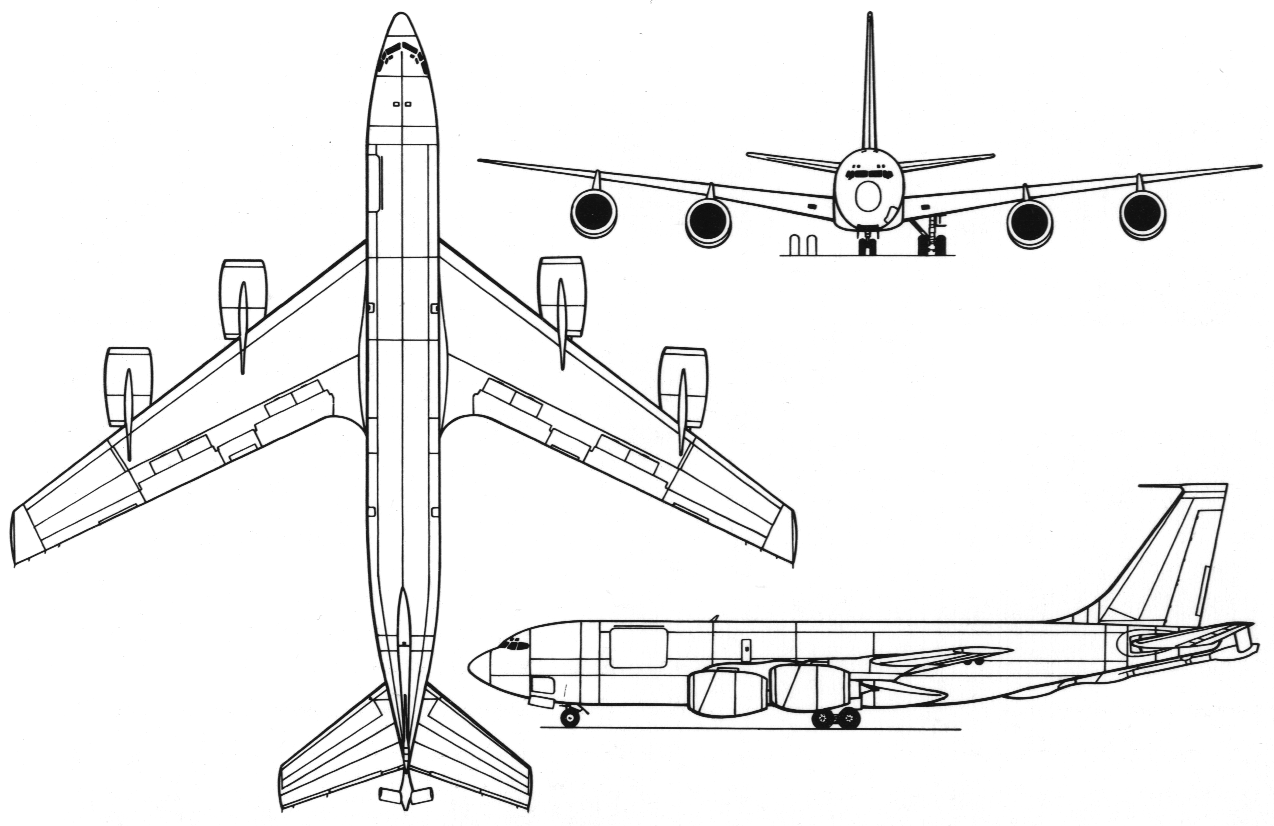K stands for tanker and C stands for transport.
The Boeing KC-135 is the United States Air Force’s (USAF) first jet-powered refueling tanker and has been in service since the Vietnam War, working to keep our strategic bombers and other air assets in the air for extended periods. With over 50 years of continual service, the Stratotanker has proven itself a capable, dependable air frame. However, maintenance costs have forced the USAF to begin exploring options for an eventual replacement, such as the KC-46 Pegasus.


Serial Number: 57-1510
Manufacturer: Boeing
Crew: Three
Engines: Four Pratt & Whitney TF33-PW-102 engines
Wingspan: 130 feet 10 inches
Length: 136 feet 3 inches
Height: 41 feet 8 inches
Weight: 322,500 pounds (maximum)
Speed: 530 mph (cruising); 580 mph (maximum)
Range: 1,500 miles
Service Ceiling: 50,000 feet
Armament: None
Cost: $30,600,000
The USAF obtained the KC-135 aircraft at Hill Aerospace Museum in January 1959 where it was assigned to the 901st Air Refueling (Heavy) Squadron of Strategic Air Command at Columbus Air Force Base in Mississippi.
The KC-135 was then reassigned to the 4228th Strategic Wing at Columbus AFB in January 1962. In February 1963, the aircraft was moved to the 454th Bombardment (Heavy) Wing at Columbus AFB. During service with the 454th, the aircraft was deployed to Kadena Air Base in Okinawa, Japan.
After serving in Okinawa, the KC-135 was transferred to the 916th Air Refueling Squadron at Travis Air Force Base in May 1969. From Travis AFB, the aircraft was deployed to the following bases: Eielson Air Force Base in Alaska; Torrejon Air Base in Spain; U Tapao RTAFB in Thailand; Malmstrom Air Force Base; and Anderson Air Base in Guam.
The aircraft was assigned to the Utah Air National Guard in Salt Lake City in April 1978. The aircraft was converted to a KC-135E in July 1982. The aircraft, named “Never Forget,” was the last remaining KC-135E assigned to the 151st Air Refueling Wing of the Utah Air National Guard when it was retired in May 2009. The aircraft flew to Hill Air Force Base on May 21, 2009. On July 18, 2009, the KC-135E was towed from the flight line to Hill Aerospace Museum for display.
K stands for tanker and C stands for transport.
In 2019 the newly appointed KC-46 Pegasus began operations to replace the aging 135. However, the USAF plans to continue flying the 135 well into the 2030s.
The standard 135 is not capable of being refueled in flight, but a special forces variant, the KC-135RT, is able to for special operational needs.
Yes, though a dangerous task, night refueling can take place with use of radar and night vision goggles.